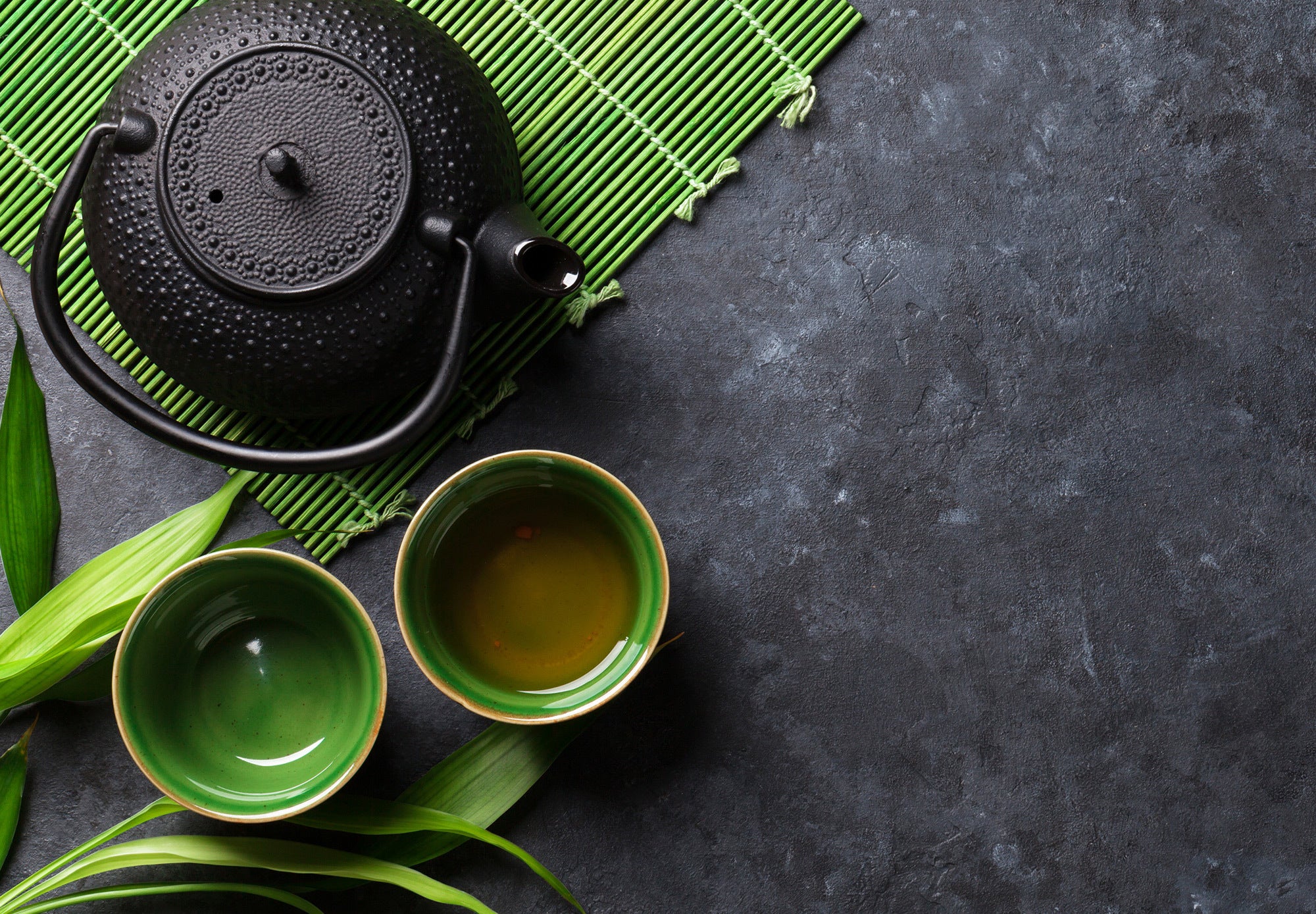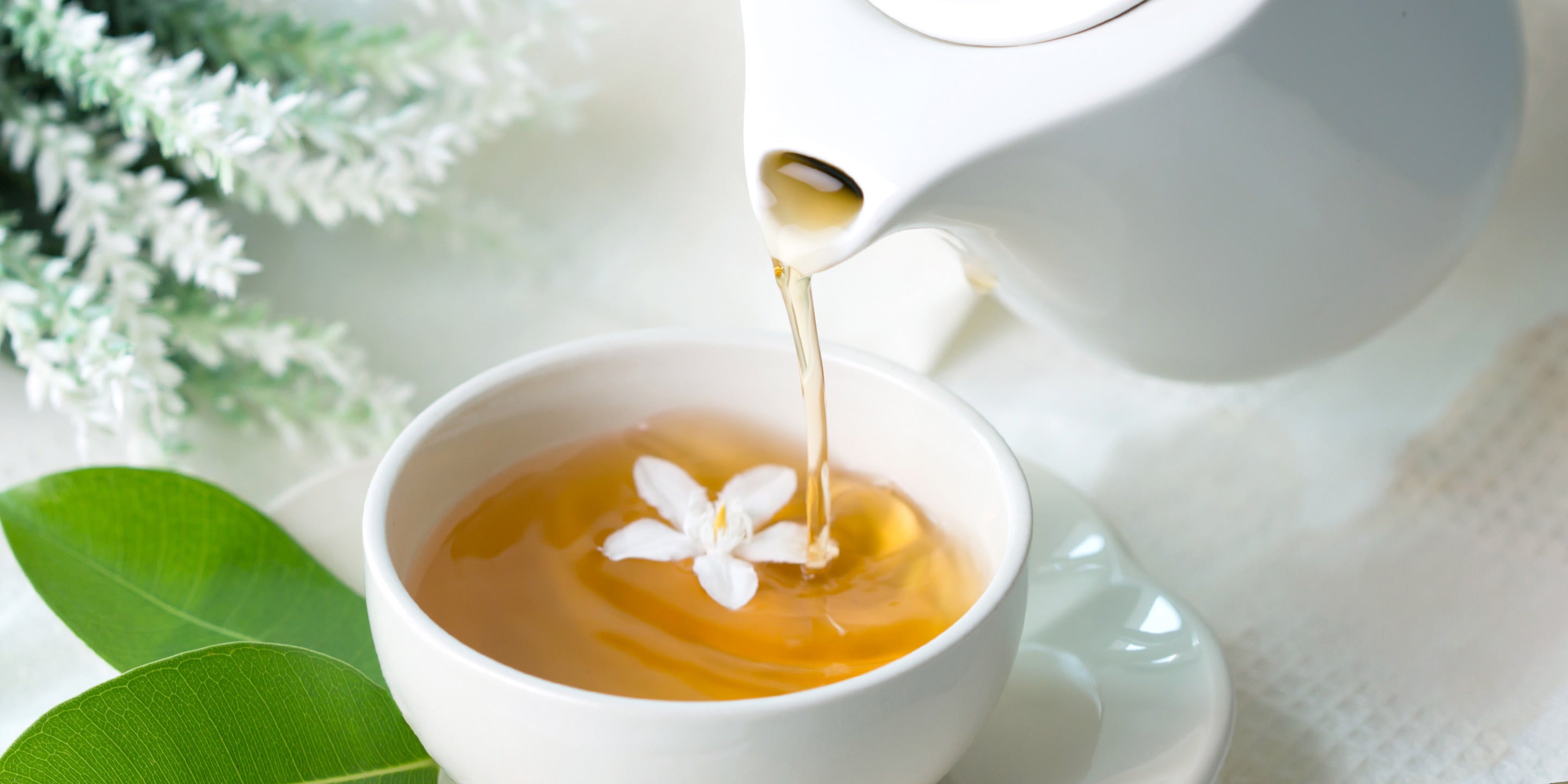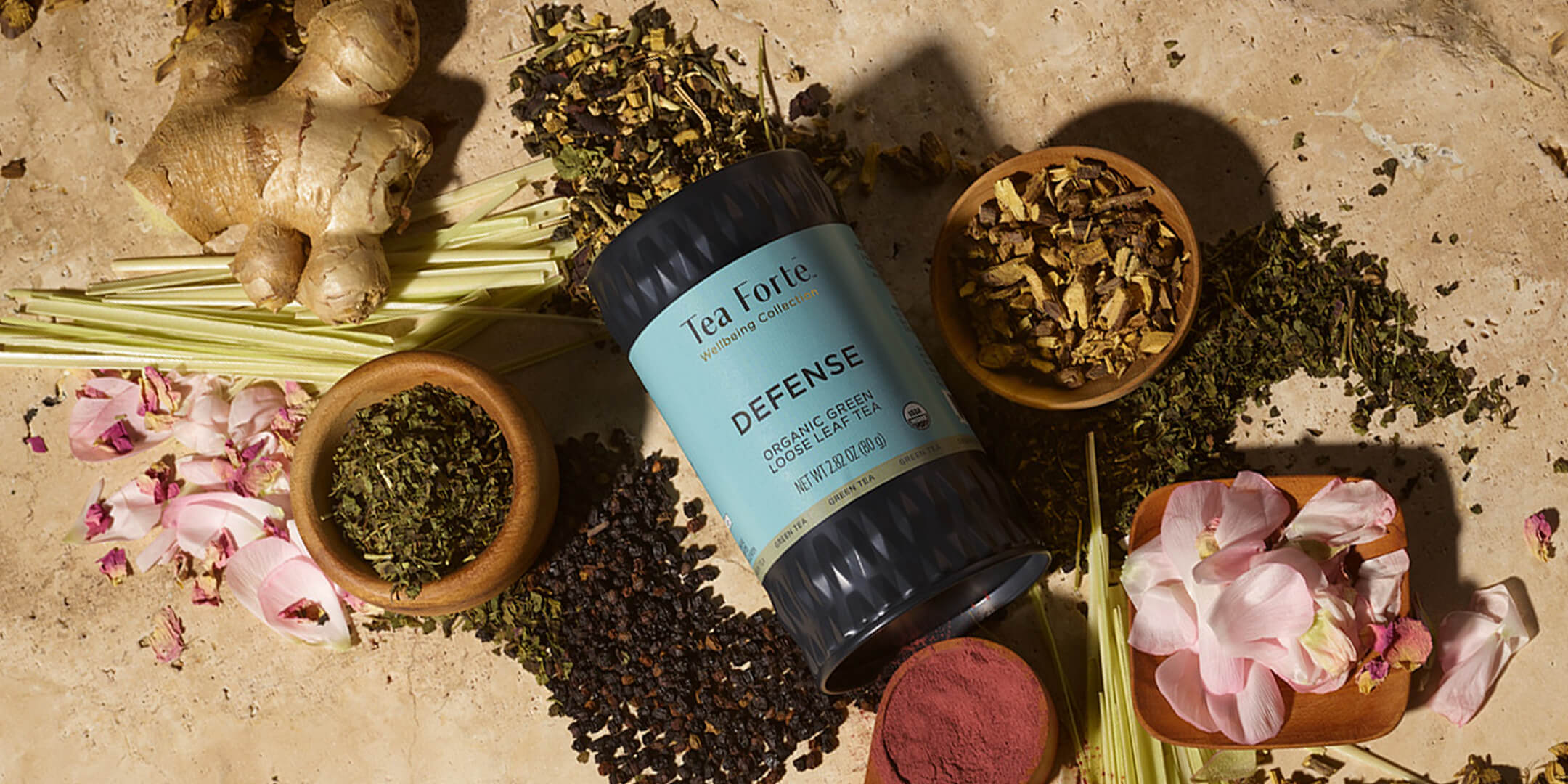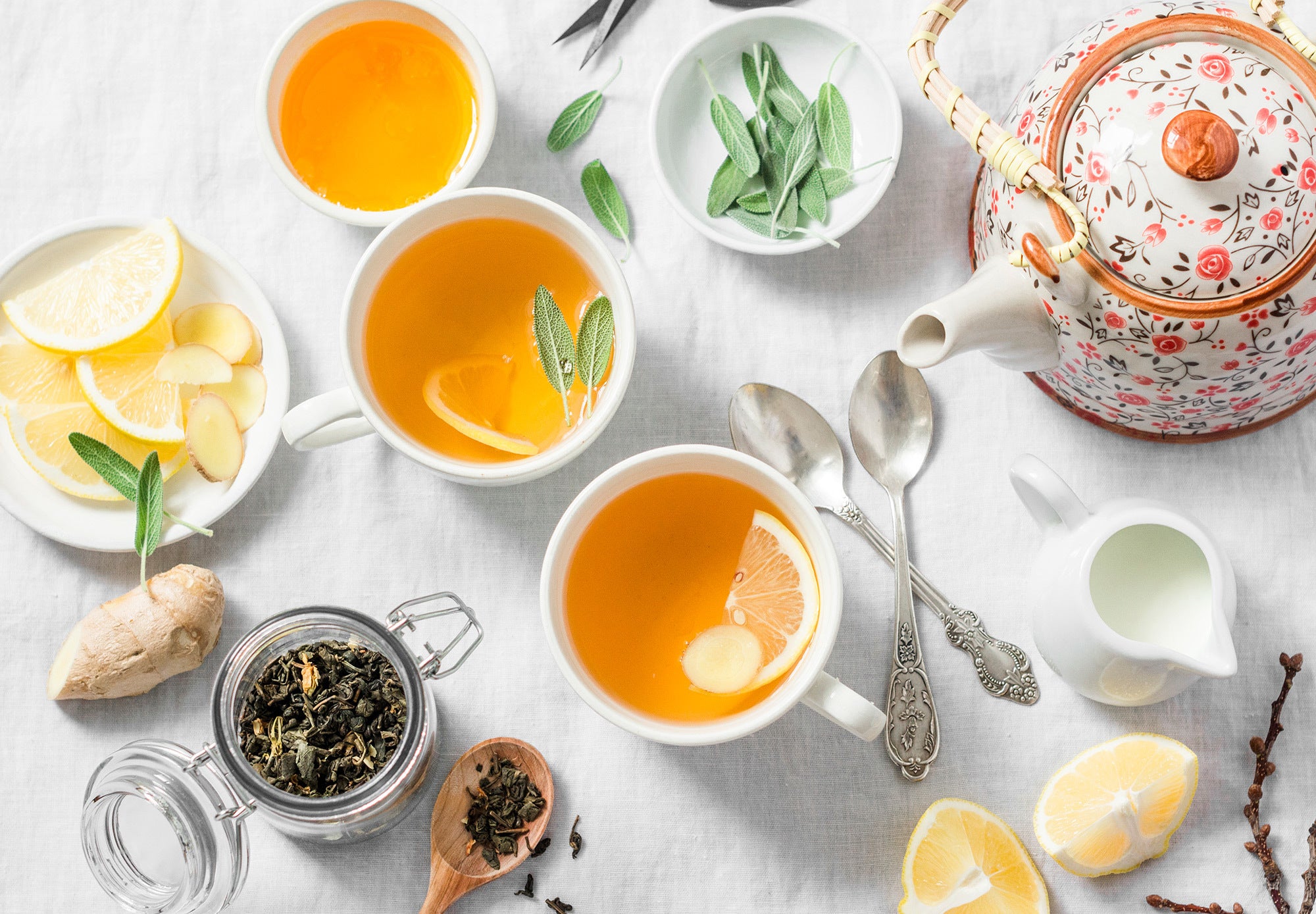In the pantheon of superfoods, green tea has long been a universal favorite. Entirely natural and brimming with health-forward properties, this beloved drink is as good for the spirit as it is for the body. Read on to learn about the many benefits of green tea.
Types of Green Tea
There’s an important distinction to note between two types of green tea, both of which are made from the same source ingredient but which are prepared differently. Each has its own array of health benefits, which we’ll explore in the next section.
Sencha, like many other green tea, is produced by the harvesting, rolling, steaming and pan-firing of leaves from the Camellia Sinensis plant, which is also used to make black, white, and oolong teas. Sencha, like all other tea, is prepared by steeping the leaves in hot water, releasing their flavor into the brew, after which the leaves are discarded and the beverage is enjoyed hot or cold. However green teas are steeped at a lower water temperature (175-185˚F vs boiling) and for a shorter amount of time (2-3 minutes) than most teas. If steeped longer than 3 minutes, a bitter taste will emerge, so keep an eye on the clock and remove the tea leaves when done. Learn more green tea preparation tips here.
Matcha, on the other hand, is a finely ground powder made from the same Camellia Sinensis plant. It differs from sencha and other green teas by being infused directly into water or milk and consumed entirely. Because the leaves are fully digested rather than discarded, matcha offers higher caffeine and antioxidant content. It also imparts a distinct, earthy flavor stronger than steeped green teas. Similar to other green tea, matcha should be steeped in a lower water temperature and shorter amount of steep time than other teas.

Health Benefits of Green Tea
Both sencha and matcha boast an array of antioxidants, which are known for guarding the body from damage inflicted by the free radicals we encounter through smog, pollution, UV exposure and oxidation (i.e., the natural aging process). Because of its antioxidant content, tea -- green tea in particular -- may act as a powerful tool to protect us from some forms of cancer while boosting our immune systems and offering a host of additional perks.
One of those perks is courtesy of an amino acid called L-Theanine, which takes the edge off of green tea's caffeine content. Thanks to this special ability, green tea delivers a calm, stable energy boost without the jitters and anxious thoughts often associated with coffee, making sencha or matcha an excellent choice for anyone wishing to incorporate heart-healthy rituals into their daily routines.
Catechins, a specific type of antioxidant found in matcha, are associated with cancer prevention (1), weight management (2) and the ability to lower cholesterol (3). Both types of green tea contain catechins, although matcha contains more than sencha.
Heart-healthy Green Tea
Regular consumption of green tea can help our hearts in several ways, including lowering LDL cholesterol (also known as “bad cholesterol”) and blood pressure. It can also improve our blood vessels’ ability to expand with increased blood flow when we’re exercising or simply excited.
Speaking of exercise, green tea is a powerful pantry ingredient for those who are working to lose or maintain weight: free of calories, substituting unsweetened tea in place of sugary beverages is a simple way to cut out “empty calories” nutritionists warn against. Green tea is also thought to aid in the metabolic process, through which the human body processes food into useful energy.

GREEN TEA STEEPING INSTRUCTIONS
Green tea needs to be steeped with care. Be sure to use the recommended water temperature of 175˚F and 2-3 minute timing so you don't end up with a bitter-tasting cup of green tea.
- Heat water to 175 degrees Fahrenheit.
- Place one tea pyramid infuser, or 1 teaspoon of loose leaf tea, into your cup.
- Pour 6-8 ounces of heated water over the tea and steep for 2 to 3 minutes to taste (Bitterness will emerge if left longer than 3 minutes).
- Add sugar or honey for sweetness, if desired. Milk (or, alternatively, lemon) is generally reserved for black tea.
The act of enjoying green tea is a health-forward ritual, supporting both a calm sense of energy and dedication to overall wellness. Explore all of Tea Forté’s green tea blends today and raise a cup to your health.
POPULAR GREEN TEAS
Sources: (1) Brahma N. Singh, Sharmila Shankar, and Rakesh K. Srivastava, "Green tea catechin, epigallocatechin-3-gallate (EGCG): mechanisms, perspectives and clinical applications". National Center for Biotechnology Information U.S. National Library of Medicine, Jul 30. 2011. (2) Westerterp-Plantenga MS, "Green tea catechins, caffeine and body-weight regulation.". National Center for Biotechnology Information U.S. National Library of Medicine, Apr 6. 2010. (3) Muramatsu K, Fukuyo M, Hara Y, "Effect of green tea catechins on plasma cholesterol level in cholesterol-fed rats.", National Center for Biotechnology Information U.S. National Library of Medicine, Dec 1986.
You may also enjoy

Tea Preparation
How to Prepare Green Tea

Tea Varieties
Jasmine Green Tea vs Black Tea



